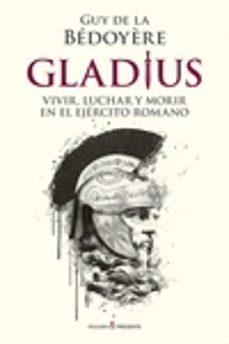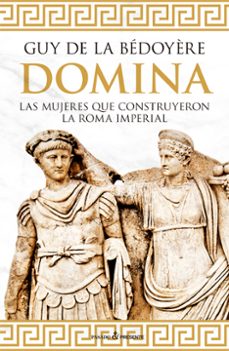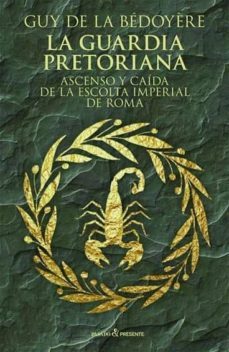Imprescindibles
Ficción
No Ficción
Ciencias y tecnología Biología Ciencias Ciencias naturales Divulgación científica Informática Ingeniería Matemáticas Medicina Salud y dietas Filología Biblioteconomía Estudios filológicos Estudios lingüísticos Estudios literarios Historia y crítica de la Literatura
Humanidades Autoayuda y espiritualidad Ciencias humanas Derecho Economía y Empresa Psicología y Pedagogía Filosofía Sociología Historia Arqueología Biografías Historia de España Historia Universal Historia por países
Infantil
Juvenil
#Jóvenes lectores Narrativa juvenil Clásicos adaptados Libros Wattpad Libros Booktok Libros de influencers Libros de Youtubers Libros Spicy Juveniles Libros LGTBIQ+ Temas sociales Libros ciencia ficción Libros de acción y aventura Cómic y manga juvenil Cómic juvenil Manga Shonen Manga Shojo Autores destacados Jennifer L. Armentrout Eloy Moreno Nerea Llanes Hannah Nicole Maehrer
Libros de fantasía Cozy Fantasy Dark academia Hadas y Fae Romantasy Royal Fantasy Urban Fantasy Vampiros y hombres lobo Otros Misterio y terror Cozy mistery Policiaca Spooky Terror Thriller y suspense Otros
Libros románticos y de amor Dark Romance Clean Romance Cowboy Romance Mafia y amor Romance dramatico Romcom libros Sport Romance Otros Clichés Enemies to Lovers Friends to Lovers Hermanastros Slow Burn Fake Dating Triángulo amoroso
Cómic y manga
Novela gráfica Novela gráfica americana Novela gráfica europea Novela gráfica de otros países Personajes, series y sagas Series y sagas Star Wars Superhéroes Cómics DC Cómics Marvel Cómics otros superhéroes Cómics Valiant
eBooks
Literatura Contemporánea Narrativa fantástica Novela de ciencia ficción Novela de terror Novela histórica Novela negra Novela romántica y erótica Juvenil Más de 13 años Más de 15 años Infantil eBooks infantiles
Humanidades Autoayuda y espiritualidad Ciencias humanas Economía y Empresa Psicología y Pedagogía Filosofía Historia Historia de España Historia Universal Arte Cine Música Historia del arte
Ciencia y tecnología Ciencias naturales Divulgación científica Medicina Salud y dietas Filología Estudios lingüísticos Estudios literarios Historia y crítica de la Literatura Estilo de vida Cocina Guías de viaje Ocio y deportes
Guy de la Bédoyère
Recibe novedades de GUY DE LA BEDOYERE directamente en tu email
Filtros
Del 1 al 4 de 4
UNIVERSITY OF CHICAGO PRESS 9780226750231
The Roman army was the greatest fighting machine in the ancient world. More than that, it was the single largest organization in Western antiquity, taking in members from all classes, from senators to freed slaves. The Roman Empire depended on its army not just to win its wars, defend its frontiers, and control the seas, but to act as the very engine of the state.In Gladius, Guy de la Bedoyere takes us straight to the heart of what it meant to be a part of the Roman army. Rather than a history of the army itself, or a guide to military organization and fighting methods, this book is a ground-level recreation of what it was like to be a soldier in the army that made the empire. Surveying numerous aspects of life in the Roman army between 264 BCE and 337 CE, Gladiusthe Latin word for sworddraws not only on the words of famed Roman historians, but also those of the soldiers themselves, as recorded in their religious dedications, tombstones, and even private letters and graffiti. Gladius reveals the everyday life of these soldiers and their families, whether stationed in a bleak frontier garrison in Britain or North Africa, tasked with guarding the emperor in Rome, fighting on foreign battlefields, mutinying over pay, marching in triumph, throwing their weight around on city streets, or enjoying esteem in honorable retirement.By illuminating the history of one organization that reflected all corners of the Roman world, Gladius gives us a portrait of an ancient society that is unprecedented in both its broad sweep and gritty intimacy.
Ver más
Tapa dura
Editorial Pasado y Presente 9788412288810
Guy de la Bédoyère (La guardia pretoriana y Domina) realiza un recorrido por todas las facetas de la vida de un soldado romano. Su servicio, su familia, sus derechos, sus victorias y sus derrotas, su licenciamiento y su afán de pervivencia. Todo ello basado en una espectacular investigación que repasa todos los testimonio existentes de las vidas (muchas de ellas anónimas) de los miembros del brazo armado del Roma. Los campamentos, las gestas, los distintos grados dentro del ejército, sus reclamaciones y su influencia en el devenir de Roma, nada escapa a este volumen de referencia para cualquier amante de la historia clásica o de la historia militar.
Ver más
Tapa blanda
Editorial Pasado y Presente 9788494970658
Guy de la Bédoyère reivindica el trascendental papel que tuvieron las mujeres en la construcción del imperio romano, en especial la familia julio-claudia. Figuras como Octavia, Livia, Agripina o Mesa
Ver más
Tapa blanda
Editorial Pasado y Presente 9788494769405
Fundada por Augusto alrededor del 27 D.C., la lite pretoriana tena como tarea principal proteger al emperador y a su familia, pero con los siglos se convirtieron en una pieza clave del poder poltico en Roma.Su poder lleg a ser tal que eran ellos en ltima instancia quienes elevaban o derrocaban a un emperador. Su influencia fue decisiva para acabar con los reinados de Calgula, Nern o Pertinax, entre otros. Guy de la Bdoyre, historiador y divulgador britnico, ha construido un retrato histrico apasionante, con el aire de las mejores novelas de espas, slidamente basado en hechos y documentos y bibliografa actualizada.
Ver más
Tapa blanda
Del 1 al 4 de 4

























